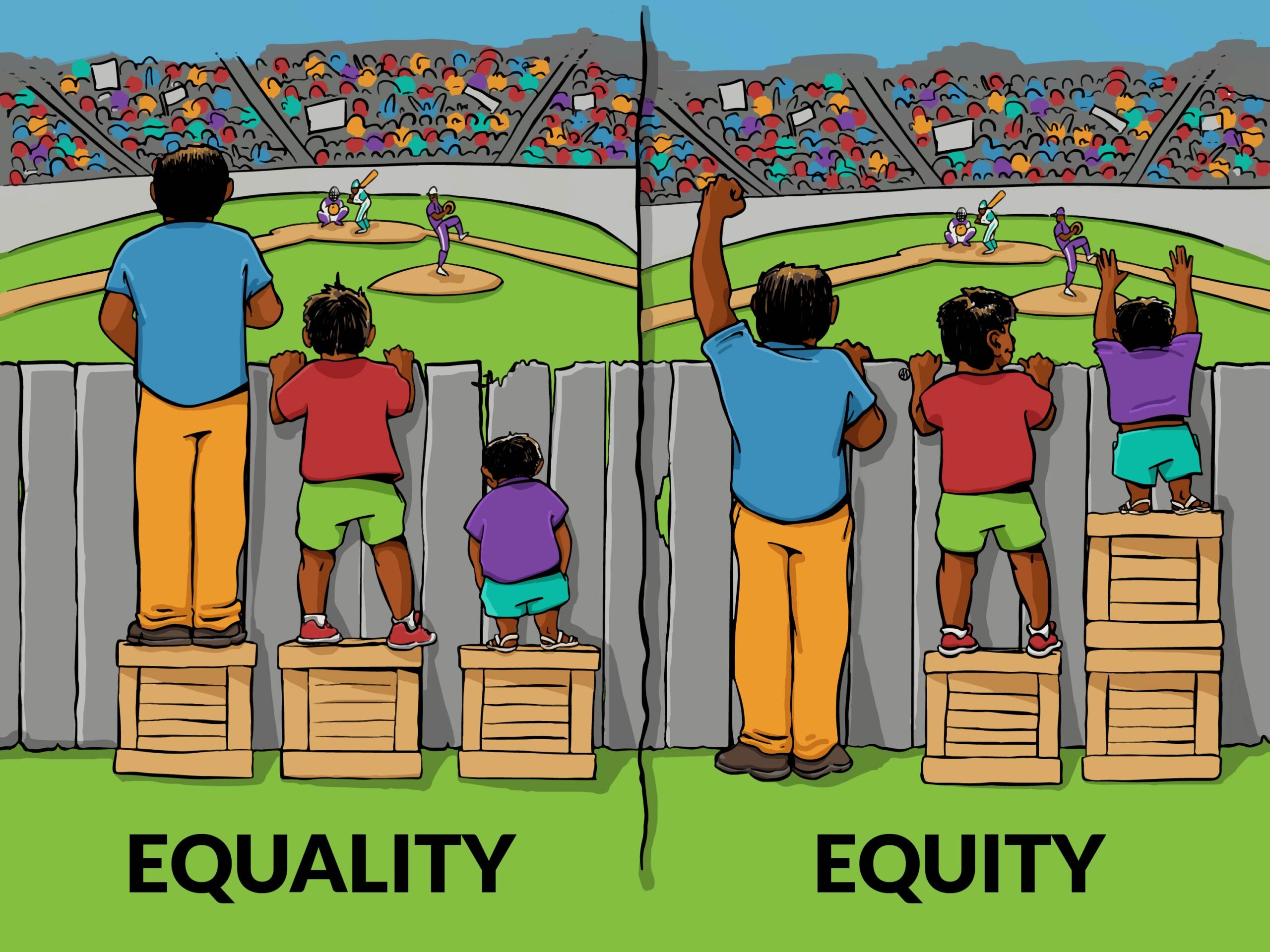The International Permaculture CoLab – Diversity by Design

Our Approach to Diversity
The CoLab aims to welcome all and to truly be inclusive and international, within the limits of our capacity. (For instance the vast majority of our written material is available in English only.) We envision our space as a diverse global virtual safe space where people from different backgrounds and perspectives can coexist and collaborate in peace and harmony. In order to actively promote this vision, we have embraced a sociocratic structure with low barriers to participation, distributed leadership, and self-organising circles. And do many other things beyond this to further our diversity and inclusivity.

Why Diversity Matters
“Use and value diversity” is one of the 12 Permaculture Principles, as described by David Holmgren. This principle is often described using the term “Don’t put all your eggs in one basket,” reflecting the fact that monocultures are rare and usually temporary in natural environments. There is a great diversity of different species and varieties of flora and fauna in different biotopes, forming interdependent webs of functions and interactions. Different species naturally occupy different niches, biodiversity breeds resilience and improves soil health, as an inevitable result of natural succession as ecosystems mature over time.
Likewise, there is a wide diversity of humans from different backgrounds and cultures, with a variety of different perspectives and skills. Diversity among humans also allows us to occupy different niches for more effective synergy/collaboration and be more resilient to challenges we face. However, when human diversity is not embraced, we can lose access to these valuable perspectives and skills, making the world more fragile and less resilient.
In permaculture systems, we understand that edges, where different ecosystems meet, are often the most productive and creative spaces. Similarly, when people from different backgrounds come together, the exchange of ideas and perspectives can lead to innovative solutions and deeper understanding. Different cultural contexts bring varied approaches to problem-solving, relationship-building, and resource management. These varied approaches, when combined respectfully, can strengthen our collective capacity. And widen our ability to respond to and design for different and changing climates, economies, and social structures etc. Just as a forest ecosystem benefits from the presence of nitrogen-fixers, pollinators, and decomposers working together, permaculture communities become more effective when they integrate diverse knowledge systems, lived experiences, and ways of understanding our relationship to the land.

Illustration by Angus Maguire. Liscensed CC-BY-SA
Barriers to Diversity in Permaculture
Global Majority individuals may encounter barriers when considering participation in permaculture spaces. Understanding these challenges, including potential systemic discrimination, practical obstacles, and respect for traditional and lived knowledge, can help communities create more welcoming environments.
Contemporary permaculture communities, particularly in Western countries, often have limited demographic diversity. This lack of representation can stem from multiple factors: practical limitations, the possibility for explicit or implicit racism and discrimination, even from the surrounding society and not the communities themselves, unconscious biases in recruitment and welcoming practices, and the natural human tendency to gravitate toward spaces where one sees oneself reflected and feels comfortable.
An example of practical limitations that influence can be logistics: Lack of access to permaculture education and resources. Permaculture Design Courses and workshops can be expensive, and many learning sites are located in areas requiring personal transportation and schedule flexibility. These barriers affect different communities differently, reflecting broader patterns of unequal access to opportunities.
Beyond logistics many Global Majority individuals may not feel drawn to spaces where they would be significantly underrepresented. People naturally seek community where they feel comfortable and welcomed. This is a reasonable preference that deserves respect. An important consideration in this regard is the difference between token representation and meaningful inclusion. When only a few Global Majority individuals are present in a space that otherwise remains homogeneous in membership, leadership, and decision-making power, this creates challenges. Those few individuals may experience isolation and hypervisibility rather than genuine belonging. Authentic diversity requires not just presence, but meaningful participation in guidance, decision-making, and the centering of diverse perspectives and practices.
For people of African descent in the Western hemisphere, agricultural spaces may carry particular historical weight. The legacy of slavery and sharecropping creates complex associations with land-based work that deserve acknowledgment and sensitivity. These historical experiences can understandably influence present-day comfort levels in agricultural settings, particularly in unpaid or subordinate roles, or in spaces predominantly led by people of European descent. For some, this legacy may create distance from agricultural and natural spaces altogether, regardless of their current composition or structure.

Permaculture ethics and principles have been practiced by indigenous and traditional communities worldwide for millennia: Earth care, observing ecological patterns, valuing diversity, creating regenerative systems, etc. Recognizing and honoring this precedent is important. When longstanding traditional practices and views from these communities are repackaged, as permaculture concepts for instance, and taught back to them as new concepts, it can feel dismissive of their traditional knowledge. Traditional ecological knowledge, deeply adapted to local conditions through generations of observation, holds immense value, and deserves respect and preserving where ever it is found.
It’s important to recognize that people across all cultures and backgrounds hold valuable knowledge, and approach teaching from a space of humility. The challenge lies in ensuring that knowledge exchange is reciprocal, rather than hierarchical or extractive, and that those who are already living sustainably are recognized as teachers, not solely students.
Creating genuinely welcoming permaculture spaces involves several considerations: actively addressing possible racism and discrimination, acknowledging historical contexts that may affect participation, moving beyond token representation toward meaningful inclusion in leadership and decision-making, addressing practical barriers to access, recognizing and valuing existing traditional ecological knowledge, and understanding that different communities may have different comfort levels and interests in participation.
By thoughtfully addressing these dimensions, permaculture communities can work toward becoming spaces where diverse participants feel genuinely welcomed, valued, and able to contribute their knowledge and perspectives.

What the CoLab Does Differently
The International Permaculture CoLab aims to be an equitable and open space comprised of individuals and representatives from a diverse range of global backgrounds and organisations. Our sociocratic organisational structure enables members to start circles, contribute, and participate in essential decision-making processes. There are no traditional hierarchies blocking participation, and people from all backgrounds are free to contribute in different ways at different levels. Overall, the CoLab aims to go above and beyond the status quo in terms of accessibility, economic justice, empowerment, inclusivity, and transparent organisational integrity.
The CoLab creates accessibility and breaks down barriers by providing a remote-first workplace without geographical boundaries, free membership benefits such as networking events and training programs available at no cost to all members, a Diversity & Decolonisation Fund providing financial support for underrepresented individuals to participate in the work of the Colab. Universal tech support is also available to all members across our online spaces, to lower barriers to digital accessibility.

The CoLab upholds its values of transparency and equity by providing its members with fair compensation and through its transparent resource allocation. The CoLab Equitable Wage Guide ensures that a standardised fair compensation formula is applied consistently across all roles, considering factors such as local cost of living, inherited wealth, children/dependents, and whether or not members belong to groups facing structural barriers. Transparent processes exist for payment and funding, with public accounting available through Opencollective for all that work within the Colab.
The International Permaculture CoLab provides a space of empowerment and growth through its Emergent Festival, which amplifies smaller member-led initiatives, providing them with funding they would not receive otherwise and broadcasting project outcomes to maximise impact. Examples of projects that have been supported by the Emergent Festival include the creation of a database of indigenous-led permaculture initiatives, the creation of a guide for onboarding new African permaculturists, and the mapping of different permaculture business models.
We support inclusivity in various ways, such as through our neurodiversity support and communication equity. Neurodiversity accommodations are available when possible, with flexible support and extra assistance available on an as-needed basis. We also aim to utilize inclusive language and accessible writing, ensuring that our webpage and public materials are crafted to welcome—not exclude—and provide clear, jargon-free communication.
Beyond simply aiming to have a sociocratic organisational structure, the International Permaculture CoLab also ensures transparent operations, open documentation, and community oversight. Decision-making processes and organisational activities are made visible, with public consent process, open meetings uploaded to our public YouTube channel, etc. Open documentation is made available, with public access to policies, procedures, and outcomes, and members are able to see and understand how the organisation functions rather than being subjected to an obscure hierarchy.

Join and Contribute
The structures and opportunities are in place, the only missing piece is you. If you are an individual facing any structural barriers, especially due to being a member of the Global Majority, we would love to see you guide us in how to lower barriers and be even more inclusive. Please feel free to participate in our events, trainings and circles and bring your suggestions on how to improve.
The International Permaculture CoLab works to create and offer a collection of tools free for all to use to collaborate and help co-create a more healthy, peaceful, and socially just world in which we care for the Earth, each other and future generations, in harmony with nature. By joining, you can add to a growing network of global diversity and increase opportunities for global collaboration, while empowering one another by working together, learning and working for change.